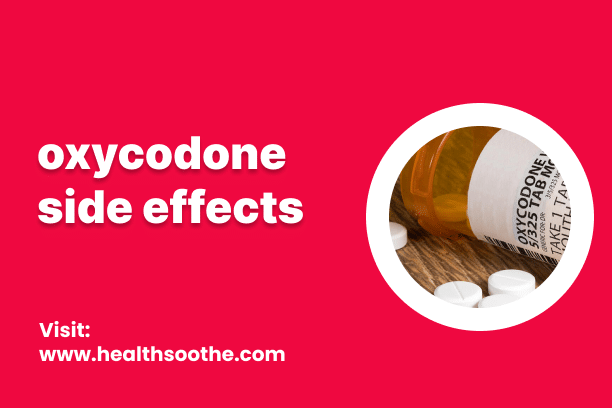Oxycodone serves as the primary active component in various pain-relieving medications, such as OxyContin, Percocet, Roxicodone, and K18 pills. Identified as a potential hazard in the 1960s, oxycodone, despite its pain-alleviating qualities, also elicits euphoria and rewarding effects. Consequently, while recognizing the medical benefits of K18 pills, it's essential to acknowledge the associated risk of abuse and addiction.
Due to aggressive lobbying efforts, oxycodone has been designated as a schedule II controlled substance. In the United States, it is unlawful to possess or use oxycodone without a valid prescription from a doctor. Primarily employed for managing moderate to severe pain following injury or surgery, oxycodone can be a valuable and dependable solution for short-term pain relief when used strictly in accordance with the prescribed guidelines. Unfortunately, a significant number of individuals initially adhere to the prescribed usage but eventually misuse or abuse oxycodone.
Oxycodone interacts with the brain's opioid receptors, inhibiting pain signals before reaching the central nervous system. Simultaneously, it prompts the release of dopamine, a neurotransmitter that induces feelings of euphoria and sedation. The combination of pain relief and euphoria often leads to oxycodone abuse, culminating in addiction for many individuals. In some cases, dependence on oxycodone can develop after just a few uses.
Are K18 Pills Addictive?
Recognizing when K18 use is veering toward abuse and addiction involves paying attention to certain signs and behaviors. Here are some indicators that may suggest a potential issue:
- Increasing Tolerance: If you find that over time you need higher doses of K18 pills to achieve the same pain relief or euphoric effects, it could be a sign of developing tolerance. Tolerance often precedes physical dependence and addiction.
- Using Beyond Prescribed Dosage: Taking more K18 pills than prescribed by your physician or using them more frequently than recommended can be a red flag. This behavior increases the risk of dependence and addiction.
- Physical Dependence: If you notice that you rely on K18 pills to feel "normal" and experience discomfort or withdrawal symptoms when not taking them, it indicates physical dependence, which is a precursor to addiction.
- Changes in Behavior: Observable changes in behavior, such as social withdrawal, neglect of responsibilities, or engaging in risky activities to obtain the medication, may signal a shift towards addiction.
- Doctor Shopping: Seeking prescriptions from multiple doctors or obtaining K18 pills through illicit means is indicative of substance abuse and a potential precursor to addiction.
- Neglecting Responsibilities: If K18 pill use interferes with your daily life, responsibilities, or relationships, it suggests a problem. Addiction often leads to neglect of important aspects of one's life.
- Continued Use Despite Negative Consequences: Using K18 pills despite experiencing adverse consequences, such as health issues, legal problems, or strained relationships, is a clear sign of addiction.
- Preoccupation with Obtaining and Using K18: If a significant amount of time and energy is spent thinking about obtaining and using K18 pills, it may indicate an unhealthy preoccupation and potential addiction.
If you or someone you know is exhibiting these signs, it's important to seek professional help. A healthcare provider or addiction specialist can assess the situation, provide guidance, and offer appropriate interventions to address any potential issues with K18 pill use. Early recognition and intervention are key to preventing the progression of substance abuse into a more severe addiction.
K18 Pill Addiction Symptoms
If you suspect that you may be addicted to oxycodone, it is crucial to communicate your concerns promptly with your healthcare provider. They may then refer you to a mental health professional or addiction specialist for an evaluation to diagnose opioid use disorder.
The American Psychiatric Association (APA) recently released the DSM-5-TR, an updated version of the Diagnostic and Statistical Manual of Mental Disorders. This manual is a standard tool used for diagnosing various conditions, including substance use disorders, alcohol use disorders, and mental health disorders.
For an opioid use disorder diagnosis related to oxycodone addiction, you will be asked variations of the following eleven questions concerning your use of oxycodone over the past year. These questions serve as the diagnostic criteria for oxycodone addiction:
- Do you spend significant amounts of time acquiring and using oxycodone, as well as recovering from its effects?
- Have you unsuccessfully attempted to stop or reduce your use of oxycodone more than once?
- Do you frequently take more oxycodone than originally planned?
- Do you experience powerful cravings for oxycodone?
- Does your use of oxycodone lead to neglect of responsibilities at home, work, or school?
- Are you still using oxycodone despite it causing problems in your interpersonal relationships?
- Has tolerance to oxycodone developed, requiring more of the medication to achieve the same effects?
- Do you spend less time engaged in hobbies and interests in favor of using oxycodone?
- Have you used oxycodone in potentially hazardous situations?
- Do you experience withdrawal symptoms when the effects of oxycodone wear off?
- Are you still using oxycodone despite it exacerbating a physical or mental health condition?
Opioid use disorder is diagnosed based on the number of oxycodone addiction symptoms present:
- Mild oxycodone addiction: 2 to 3 symptoms
- Moderate oxycodone addiction: 4 to 5 symptoms
- Severe oxycodone addiction: 6 or more symptoms
A comprehensive assessment by a healthcare professional using these criteria can guide appropriate intervention and treatment for oxycodone addiction.
Read Also: ANAVAR: DISCOVER ITS USES, DOSAGE AND SIDE EFFECTS
Pros and Cons of k18 pill
Pros
- Pain Relief
- Fast-Acting
- Medical Supervision
Cons
- Addiction Risk
- Side Effects
- Tolerance and Dependence
- Misuse and Overdose Risk
Differences Between k18 pill and diprospan
K18 Pills
Primarily prescribed for pain relief, especially in cases of moderate to severe pain due to conditions like injury or surgery.
Diprospan
Used for its anti-inflammatory effects, Diprospan is often prescribed to treat various inflammatory conditions, such as arthritis, allergies, and skin disorders.
Alternative to k18 pill
Opioid Alternatives for Moderate to Severe Pain
- Non-Opioid Prescription Analgesics: Depending on the severity of the pain, your healthcare provider may consider prescribing non-opioid analgesics with fewer risks of addiction.
- Tramadol: An opioid-like medication that is considered less potent than traditional opioids.
K18 Pill Addiction Treatment at Renaissance Recovery
While K18 pills carry a high risk of addiction, our team at Renaissance is equipped to assist you in addressing both the physical and psychological aspects of opioid addiction. We recognize the challenges of dependence on opioids and are here to support your recovery journey.
Many individuals with opioid dependence find that a supervised medical detox provides a smoother path to recovery. We can facilitate connections with licensed medical detox centers in Orange County and throughout Southern California.
At Renaissance, our expertise lies in outpatient treatment for opioid addiction. If you require additional support and structure in your recovery process, we also offer Intensive Outpatient Programs (IOPs) and Partial Hospitalization Programs (PHPs).
Our approach to treating opioid use disorder involves a combination of medication-assisted treatment and psychotherapy. Our comprehensive treatment programs include:
- Counseling (both individual and group)
- Family therapy
- Holistic therapy
These therapeutic interventions are designed to address the various facets of opioid addiction and support your recovery journey. If you or someone you know is struggling with opioid addiction, reaching out to professionals at Renaissance can be a crucial step toward achieving lasting recovery.
Conclusion
While K18 pills present a significant risk of addiction, the dedicated team at Renaissance is committed to providing comprehensive support for individuals grappling with opioid dependence. Acknowledging the complexities of both the physical and psychological aspects of addiction, we emphasize the importance of supervised medical detox as a foundational step toward recovery.
Our network includes licensed medical detox centers in Orange County and across Southern California, offering a smoother pathway for those navigating opioid dependence. At Renaissance, we specialize in outpatient treatment, tailoring our approach to meet individual needs. For those seeking additional structure, our Intensive Outpatient Programs (IOPs) and Partial Hospitalization Programs (PHPs) provide a supportive framework.
Recognizing the effectiveness of a combined approach, we integrate medication-assisted treatment and psychotherapy into our programs. Our offerings encompass a range of therapeutic modalities, including individual and group counseling, family therapy, and holistic therapies. These interventions are crafted to address the multifaceted nature of opioid addiction and foster a comprehensive recovery experience.
If you or someone you know is contending with opioid addiction, reaching out to Renaissance is a pivotal step towards achieving lasting recovery. Our team is dedicated to guiding individuals on the path to wellness, offering the expertise and compassion needed for a successful and sustainable recovery journey.



